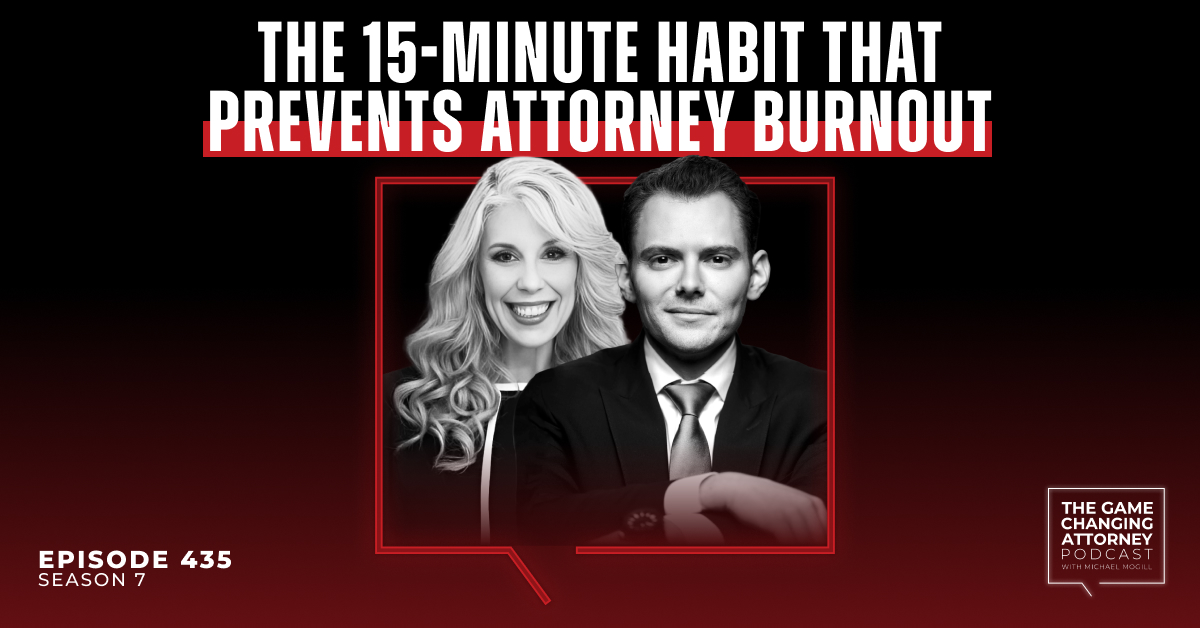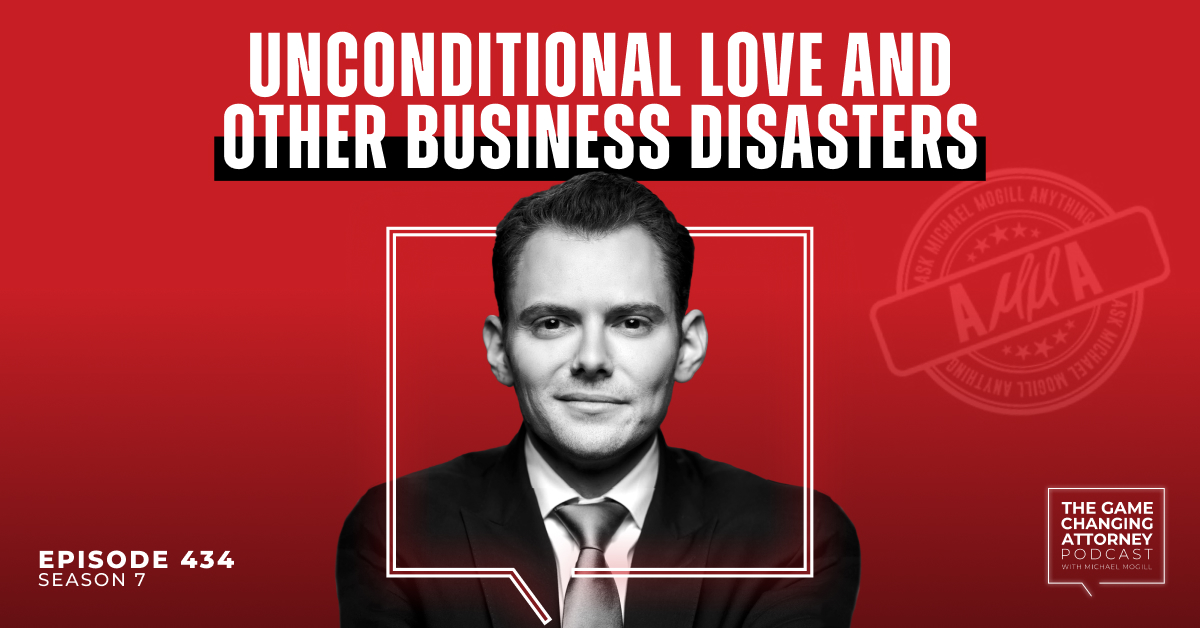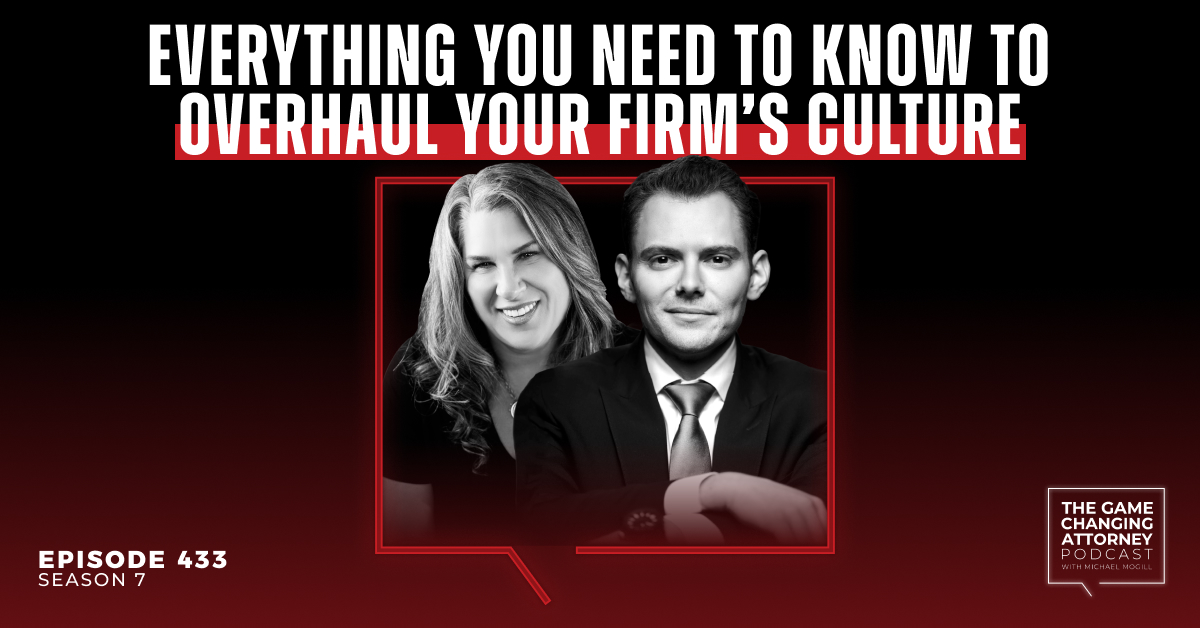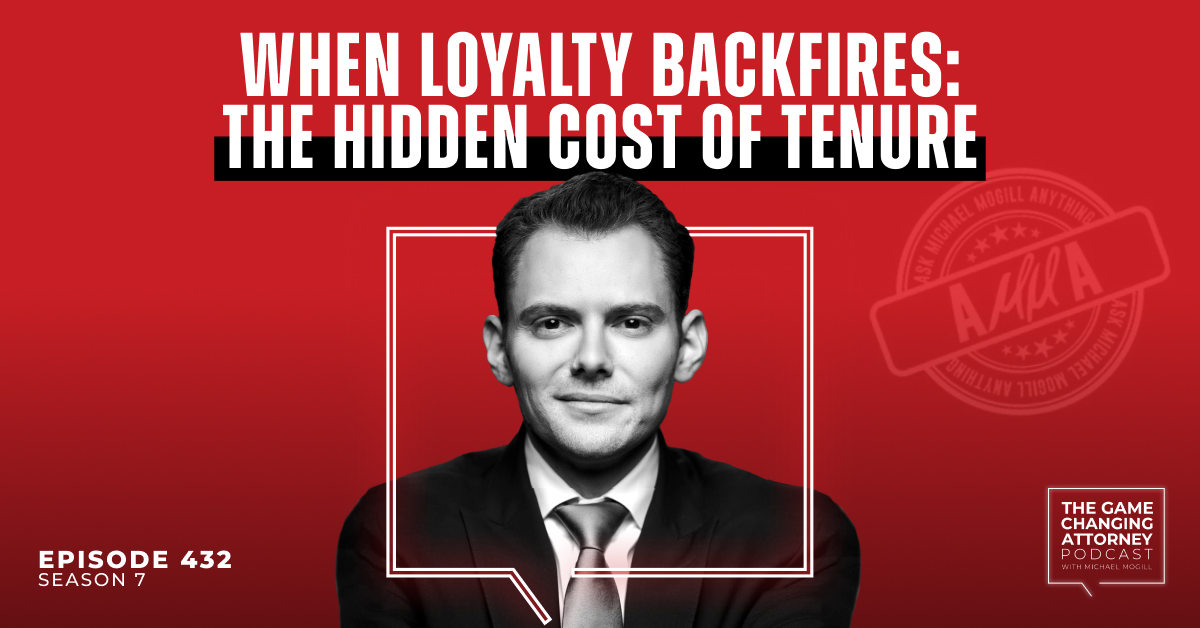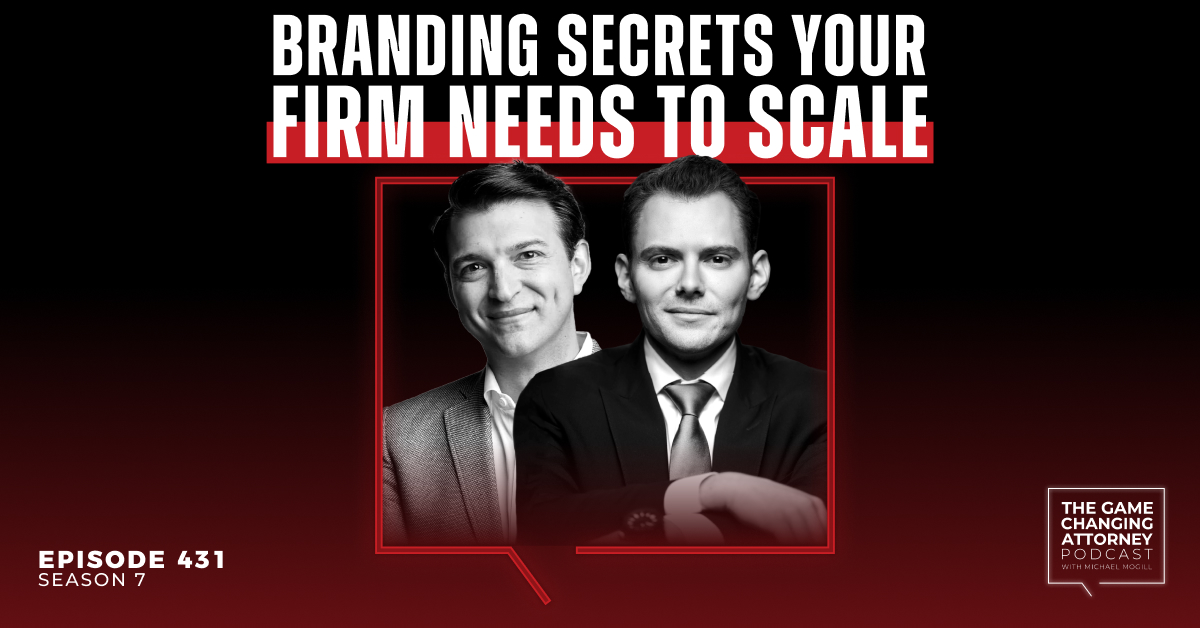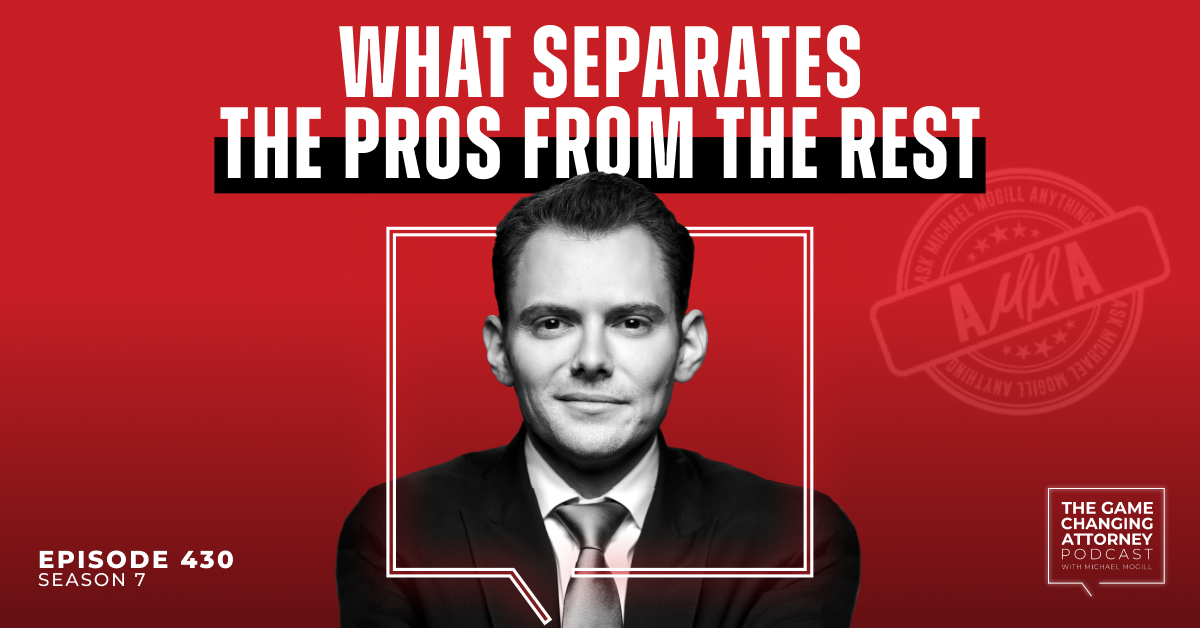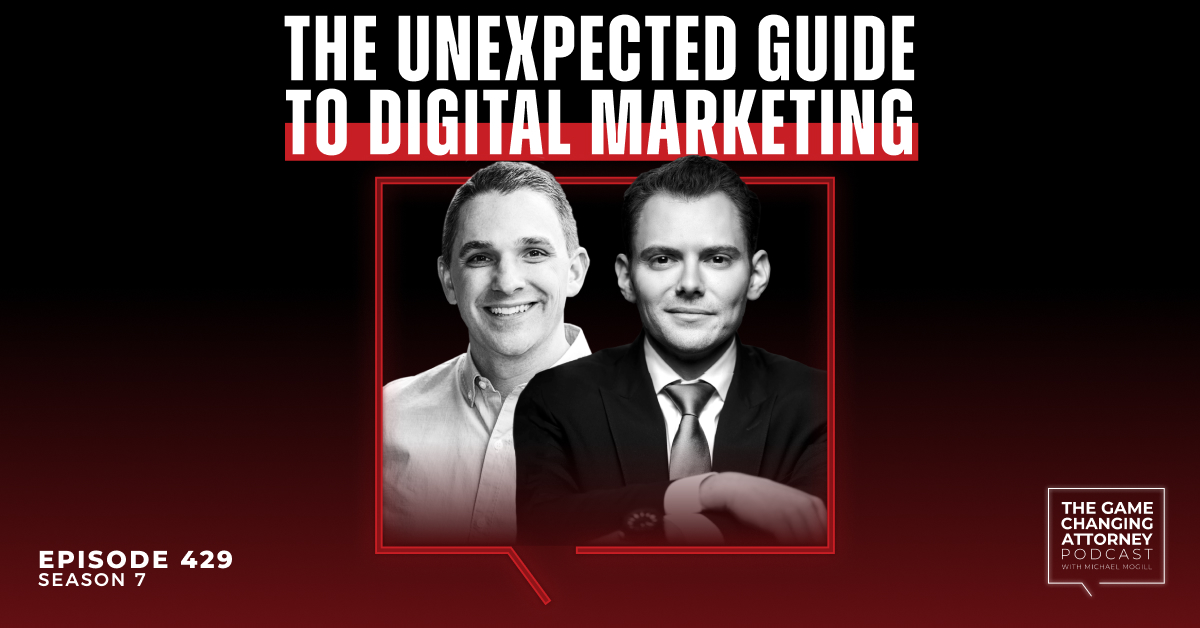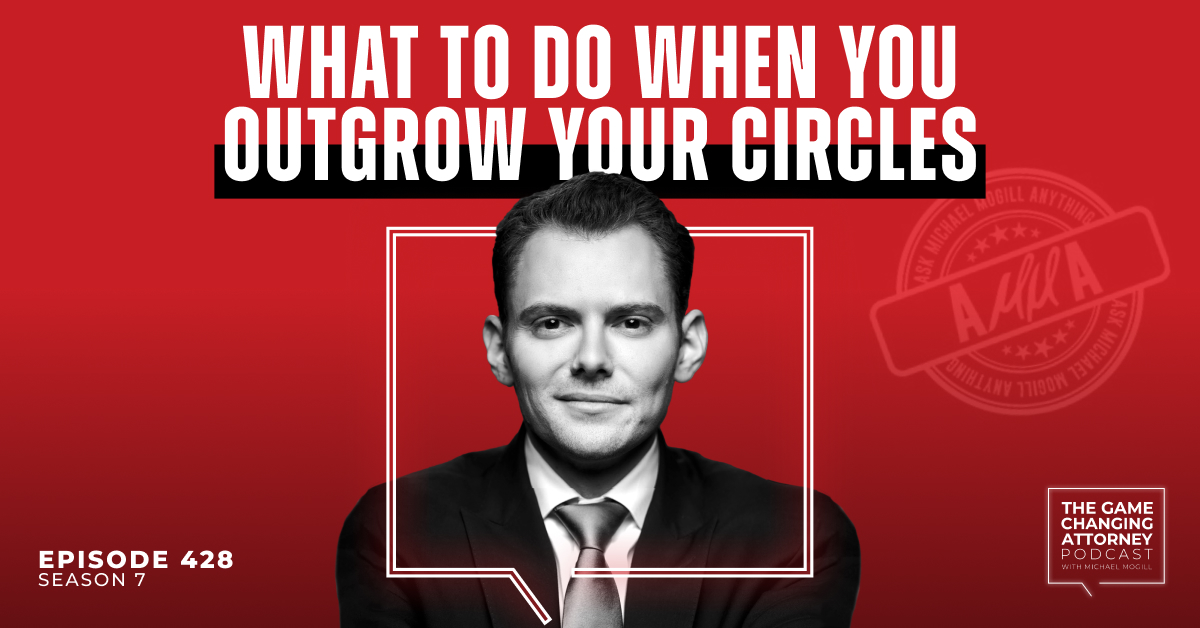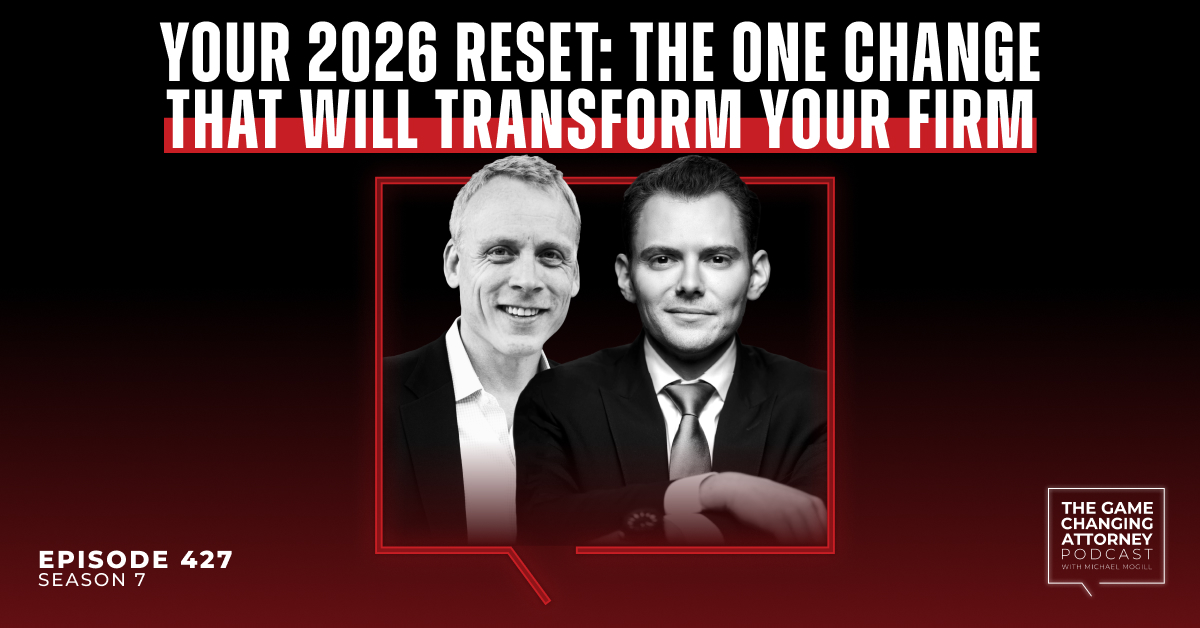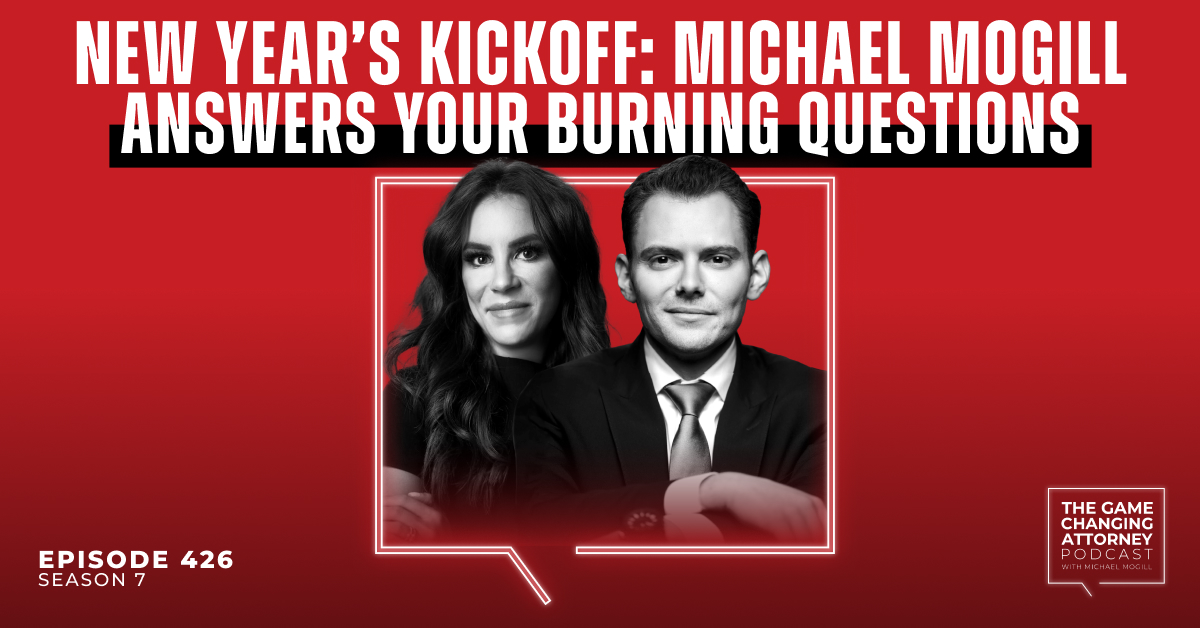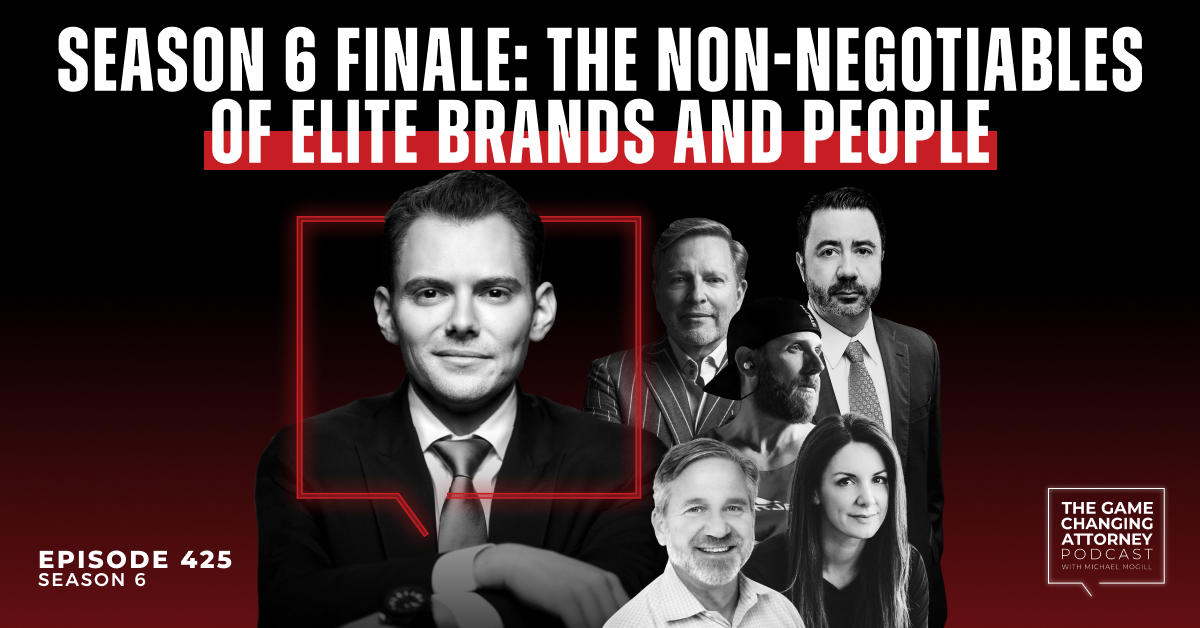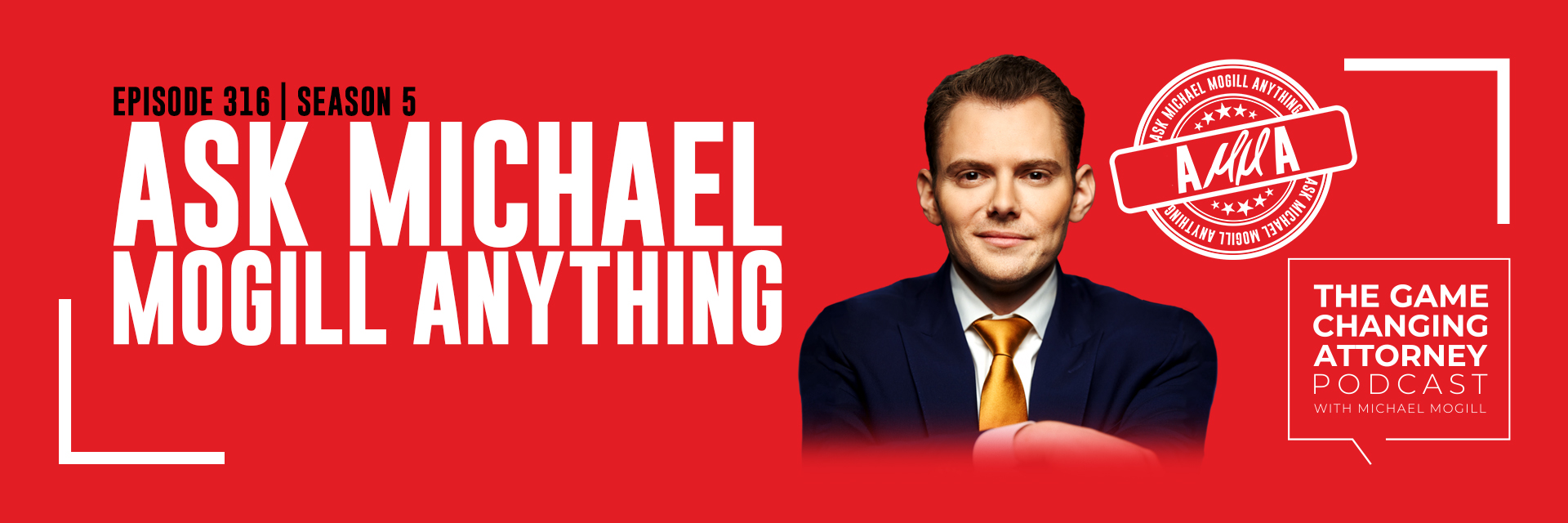
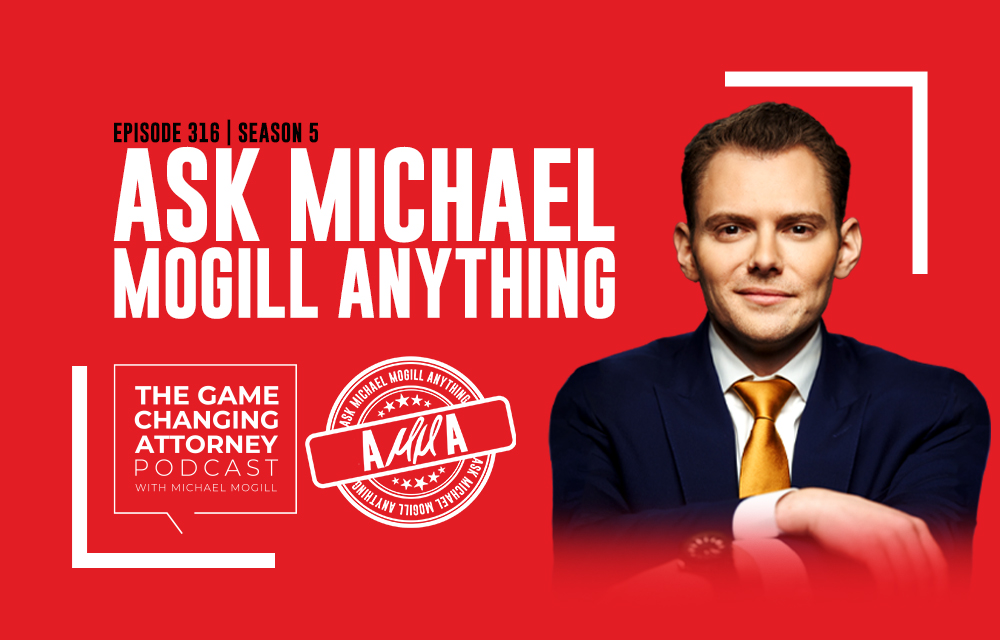
Episode 316 — AMMA — Own It or Fix It: The Reality of Hard Work vs. Results
Are you ready to unleash exponential growth by trading entitlement for relentless, impactful execution in your law firm?
In this episode of The Game Changing Attorney Podcast, Michael Mogill reveals the raw realities of running a business, sharing powerful insights on mastering adaptability, executing with precision, and building a results-driven culture.
You’ll learn:
- How to build adaptability into your practice, equipping your firm to handle unexpected challenges while staying on the path to growth
- Proven strategies for honing in on one transformational goal that drives meaningful progress and fuels long-term success
- Why creating a transparent, results-driven culture is essential for empowering your team to deliver measurable outcomes consistently
In the fast-paced world of business, taking your firm to the next level demands more than just effort. It’s about shedding entitlement and adopting a mindset of accountability. This discussion is loaded with actionable strategies to shift your approach, ensuring every move drives real impact and positions your firm at the forefront of excellence.
Listen & Subscribe
Show Notes:
Adaptability is a superpower. “You can make a great plan and commit to it, but recognize that the greatest skill is your ability to adapt to whatever comes your way. There will be things that surprise you, as the plan seems perfect when you’re putting it together, but it doesn’t always work out as expected. This is why, when you meet successful entrepreneurs and leaders, there’s an immediate camaraderie because they’ve all been through challenges. The more successful someone is, the more adversity they’ve had to overcome.”
Master of one. “Instead of trying to spread yourself thin in 10 different directions with numerous goals, concentrate on a singular, impactful change. Years ago, I decided I wanted to improve my sleep. That was my one focus: going to bed earlier, not adding a list of goals like drinking a gallon of water or losing a specific amount of weight. By focusing on just one thing and compounding on that focus year over year, you can drive significant growth.”
Effort isn’t enough; results matter. “No one cares how hard you’ve worked. What matters is the result. You can put forth a lot of energy and pull all-nighters, but that doesn’t guarantee the outcomes you want. Different actions and decisions equal different results. People who say ‘work smart, not hard’ are making excuses for not working hard. True growth doesn’t happen with a nine-to-five mindset; it’s about effectively spending those hours.”
Clarity in communication and expectations. “If your team isn’t achieving the desired results, it might be a lack of clear communication about what is expected. There could be a misalignment in the perception of what hard work and value mean. It’s crucial to align on what value means to your organization and clearly define what success looks like, setting up processes and standards to guide them.”
Accountability breeds excellence. “Use KPIs to track your team’s progress and ensure alignment with your firm’s goals. Objective metrics allow you to see who’s thriving or who’s merely blending in. People who are genuinely committed excel in a culture that holds them accountable and rewards results. Regular feedback helps shine a light on areas needing improvement, ensuring everyone knows where they stand.”
Spotting true talent. “When hiring someone for a pivotal role, set clear metrics and expectations from the start. You want to see impact as early as month one. Genuine talent thrives under accountability and celebrates the opportunity to deliver tangible results. It’s about having something to show for their work — not just possessing a great resume, but also making significant contributions.”
No excuses for mediocrity. “Effective leadership means having transparent, honest conversations consistently. Employees should never be surprised by evaluations of their performance. If an outcome is less than desirable, it’s a failure of communication from leadership. Maintaining an open dialogue about expectations and performance will ensure a culture of ongoing improvement.”
Connect with Michael
- Text directly at 404-531-7691

